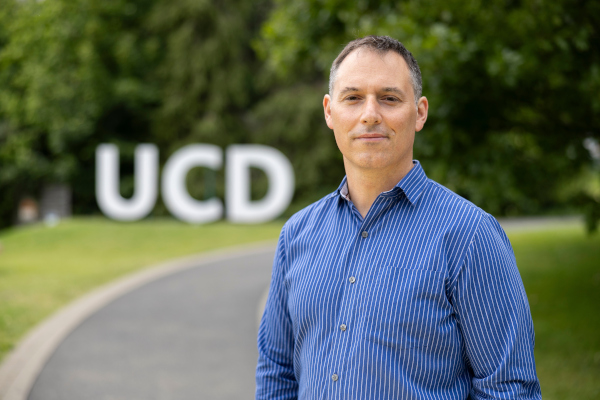UCD expert awarded ERC Advanced Grant for cutting-edge research
Thursday, 26 June, 2025
Share

An Associate Professor in Applied and Computational Mathematics at UCD School of Mathematics & Statistics, University College Dublin, (opens in a new window)Barry Wardell will develop models to accurately detect and analyse Gravitational Waves through his EMRIWaveforms project which he leads.
The EMRIWaveforms (Waveforms for Extreme Mass Ratio Inspirals) project
The breakthrough detection of Gravitational Waves was celebrated with the 2017 Nobel Prize in Physics. Gravitational Waves are ripples in the fabric of space-time emitted during powerful astronomical events. Detection and analysis of these waves could revolutionise our understanding of the universe.
The EMRIWaveforms team will work with the European Space Agency-led Laser Interferometer Space Antenna (LISA) - the first mission to probe the entire history of the universe using Gravitational Waves - to find and decode these important signals.
Associate Professor Wardell explained, “Gravitational waves have opened a completely new way of exploring the universe—but we’ve only just scratched the surface. With the upcoming LISA mission from the European Space Agency, we’ll be able to ‘hear’ signals from some of the most extreme events in the cosmos, including black holes the size of our Sun spiraling into supermassive black holes millions of times larger.
“These systems, known as EMRIs (Extreme Mass Ratio Inspirals), are rich in information but incredibly hard to detect without precise models to guide the search. That’s where my project EMRIWaveforms comes in. Thanks to the support of the European Research Council, my team will develop the first accurate models of these signals, helping LISA unlock discoveries that are currently out of reach. This research is key to making sure we don’t miss some of the universe’s most fascinating secrets.”